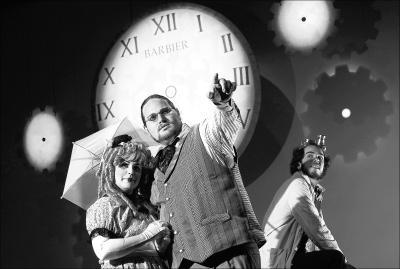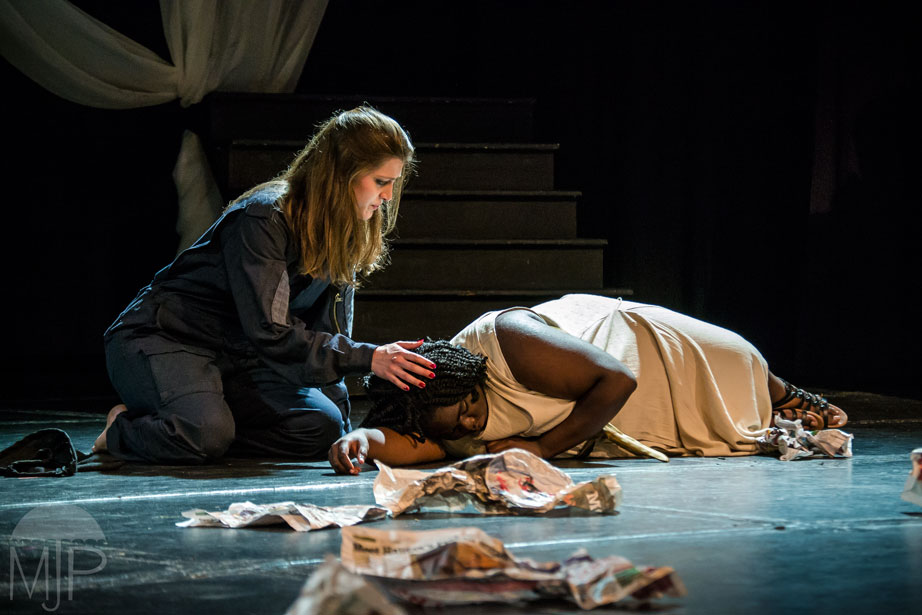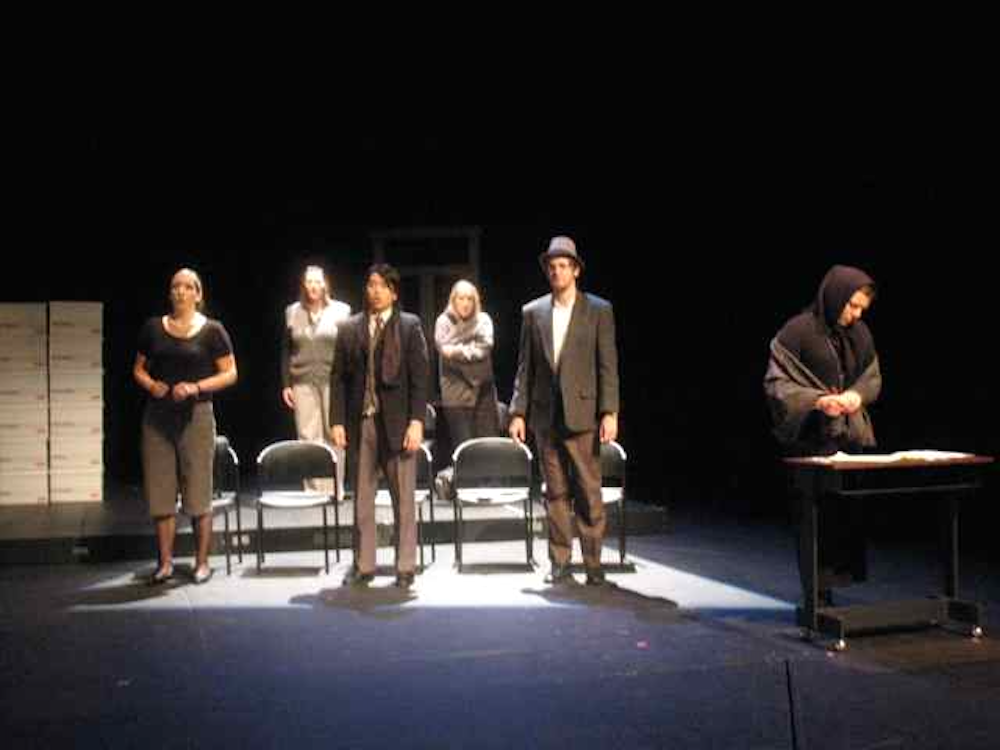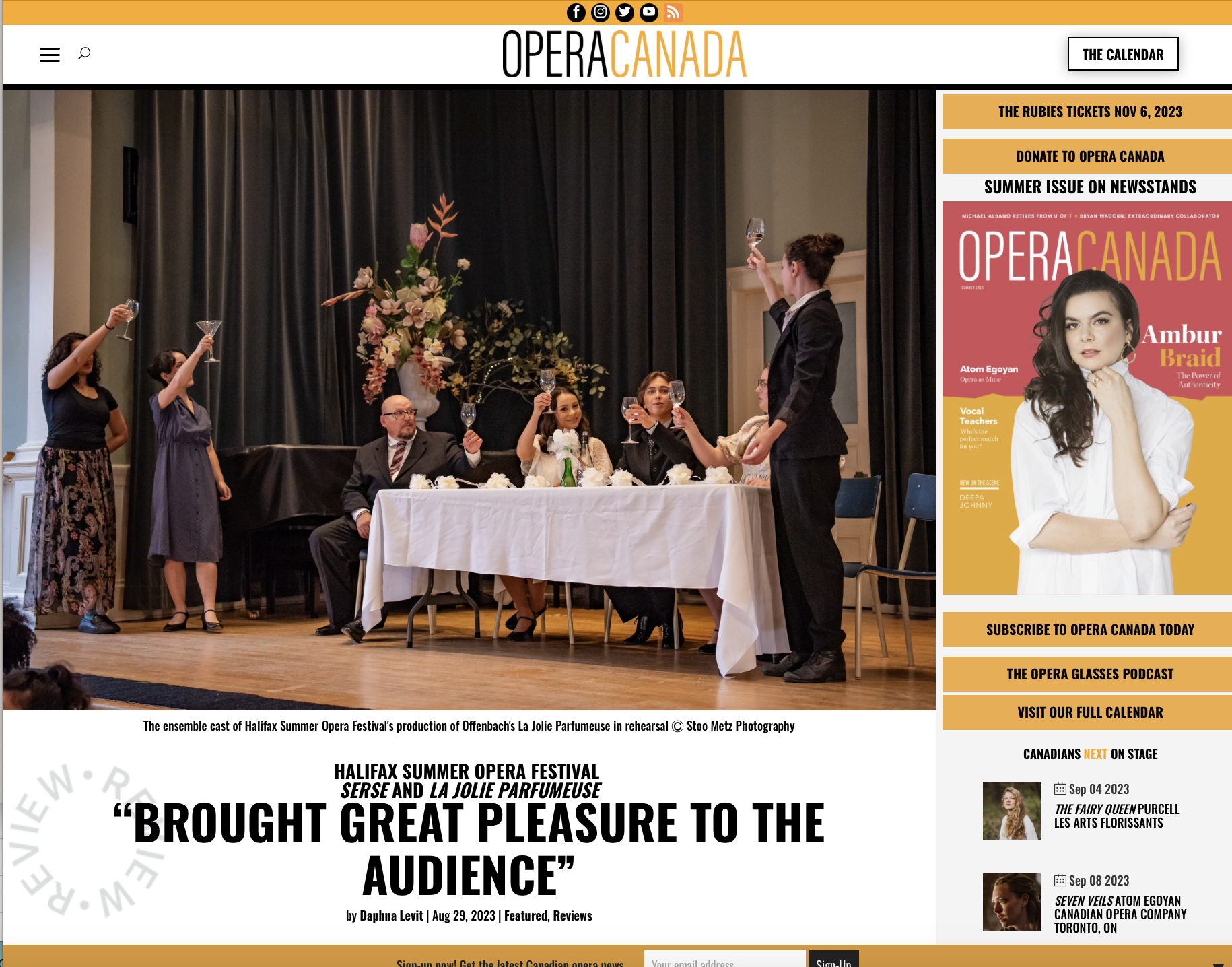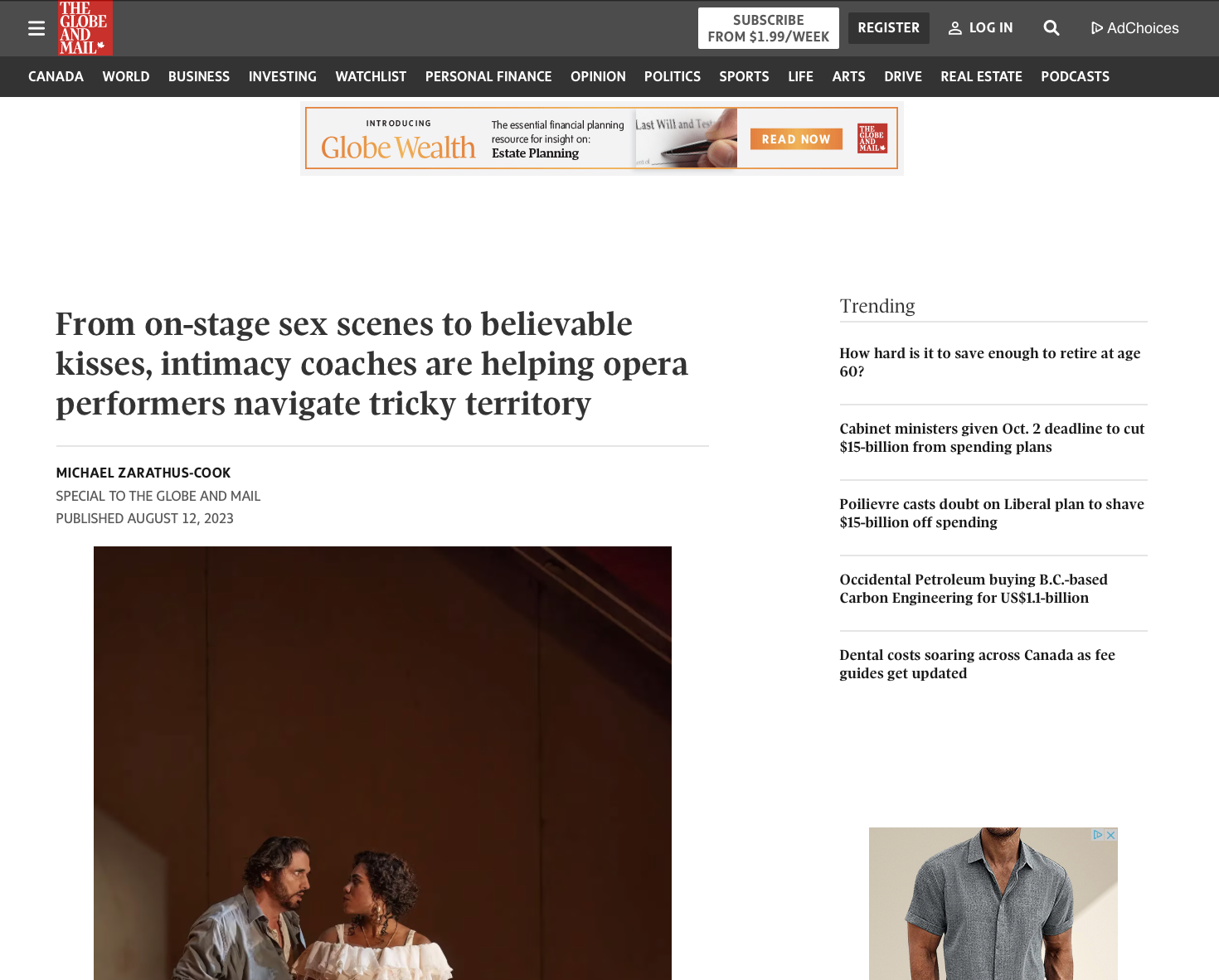McCarthy all but stopped the show, Rusque’s voice shone in finale
By STEPHEN PEDERSEN | Opera Review
Sun, Aug 7 – 4:54 AM
The Halifax Summer Opera Workshop production of Offenbach’s The Tales of Hoffmann may be an amateur production but it has what many professional productions lack. It has heart, passion, imagination and, most important, energy and belief.
For all these reasons it works as a first-rate theatrical experience. It is true the voices are uneven and fatigue can slightly dim a glory during a prosy passage. But when the stakes are high and the chips are down, all the voices rise triumphantly in the fevered glory of Offenbach’s emotional poetry.
The story is told in three acts plus a prologue and epilogue.
This is how it goes. Hoffmann is a poet. He is drunk. His drinking buddies call for a story.
Brooding off to one side sits Lindorf, his arch rival for the love of the opera singer Stella. Next door to the pub is an opera house where Stella is singing in a production of Mozart’s Don Giovanni, which incidentally is a story of a serial seducer who perishes in the fires of hell.
Each of his three loves was destroyed by Lindorf, Hoffmann says. The women are Olympia, a mechanical doll that he sees as a human because of special glasses; the beautiful and seductive courtesan Giulietta and the consumptive soprano Antonia, who will die if she sings. All three women are aspects of Stella.
Lindorf, who is also split into three parts, is the force that destroys Hoffmann’s loves. In Act 1, he is the mad scientist Coppelius, an avatar, in the folk-tale version of the Sandman, who gouges out the eyes of sleepless children. He destroys Olympia, after stealing her eyes, because Spalanzani, his co-inventor of the marvellous singing and dancing doll, defaults on his fee.
In Act 2, Lindorf manifests as Capt. Dapertutto. He collects people’s shadows through Giulietta and has already collected the shadow of Schlemil by this method. Hoffmann kills Schlemil in a duel with a weapon provided by Dapertutto and flees. Giulietta blows him a kiss as she leaves with Dapertutto.
Antonia cannot resist singing in Act 3 even though she knows it will kill her. Her mother, also an opera singer, is dead. Her father, Crespel, tries to persuade Hoffmann to help him keep Antonia from singing. But another version of Lindorf appears in the person of the evil Dr. Miracle. He pretends to cure Antonio with drugs and encourages her to sing. He also attended Antonia’s mother before she died.
Antonia dies in Hoffmann’s arms after letting her voice go free in a duet with the ghost of her mother that constitutes the emotional climax of opera. It is a powerful scene. The music is irresistibly poignant and glorious. Bring a Kleenex. Bring two.
In the epilogue, Hoffmann’s faithful companion, Niklausse, reveals herself as a woman and declares her love for Hoffmann. She is a fourth personification — woman as muse.
Hoffman passes out drunk. Stella comes to find him for their scheduled rendezvous after her performance. He is clearly out of it. So she goes off with Lindorf.
The End.
There are two casts for this show. The Hoffman for the opening cast was Darrell Hicks, from Ontario. His robust voice richly coloured Hoffmann’s many arias and duets. His pitch flagged slightly in the Giulietta scene but he recovered well.
Nova Scotia’s Alyssa McCarthy all but stopped the show with her performance as Olympia. Even through her jerky mechanical actions, we caught a sense of the sweet young girl Hoffmann perceived through his goggles. Carl Ellinwood Jr.’s mechanical actions as Spalanzani’s assistant were wonderfully comic as we realized that he, too, was a puppet.
The glorious finale of the Giulietta act revealed the astonishingly mature and beautiful voice of British Columbia’s Tamara Rusque.
Director Nina Scott-Stoddart’s staging of this scene, which features the famous Barcarolle, was strikingly imaginative to the point of brilliance. Couples repose in pairs as though seated in gondolas but as the scene shifts to a brothel, they pair off to play stylized, slow-motion, sex games, with women wielding switches as they gently spank their partners.
Nova Scotia’s Matthew Beasant delivered a strong, powerfully musical performance as Dr. Miracle in the Antonia act.
Ontario soprano Andrea Cerswell as Antonia was one of the vocal glories of the opera. Her voice is strong though somewhat light. It was superbly supported by her acting talent. She hooked us good.
Ontario’s Jessica Lane delivered a strong, consistent performance as Niklausse.

